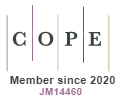Do black lives matter? The urgency of thinking anti-racist education in front of the impacts of the COVID-19 pandemic
DOI:
https://doi.org/10.5585/dialogia.n36.17917Keywords:
Anti-Racist Education, Racism, Pandemic COVID-19Abstract
In March 2020, the World Health Organization (WHO) declared COVID-19, an infectious disease that spread throughout the world, as a pandemic, making containment guidelines necessary to reduce its transmission. The impact of these measures was felt at a general level, meaning an intensification of the political-economic crisis in much of the world, making social inequalities more visible, the result of issues of race, gender and class. At that moment, sources of information began to show the consequences of this, starting with the murder of George Floyd in the United States of America (USA), killed in May, by a white policeman, through suffocation, thus emerging a series of anti-racist protests and against police violence. In Brazil, these protests join so many other cases under debate, such as that of the boy João Pedro, 14, killed in a police operation in the Salgueiro complex (RJ). All of this sparks debates around racism, which has been put up so often, as a practice linked to a lack of information and education. Based on these statements, we ask: why do we need to think about anti-racism in the context of education in the pandemic and in the post-pandemic? in addition, we seek to reflect from a methodological basis of literature review on racism and education in the intrinsic links with various facets of daily life and the needs of anti-racism as a tool to tackle inequalities.
Downloads
References
BRASIL. Ministério da Saúde. Política Nacional de Saúde Integral da População Negra: uma política para o SUS. Brasília: Editora do Ministério da Saúde, 2017. Disponível: https://bit.ly/3eYKQGN. Acesso em: 24 jun. 2020.
BRASIL. Ministério da Educação. ENEM 2020 inscrições, 2020. Disponível em: https://www.youtube.com/watch?v=apufjiGlIY0. Acesso em: 29 jun. 2020.
CANECO, Cássia; TAVARES, Jessica; MEDINA, Graciela. Quem tem o direito de sonhar um futuro pós-pandemia no Brasil? Nexo, 15 mai. 2020. Disponível em: https://bit.ly/3eNPDdJ. Acesso em: 25 jun. 2020.
CARDOSO, Ivanilda Amado. Por que a o COVID-19 nos obriga a repensar a nossa concepção de educação? Portal GELEDES, 8 de mai. 2020. Disponível em: https://bit.ly/3ihJYPi.Acesso em: 24 jun. 2020.
COSTA, Ligia Maria Cantarino da; MERCHAN-HAMANN, Edgar. Pandemias de influenza e a estrutura sanitária brasileira: breve histórico e caracterização dos cenários. Revista Pan-Amazônica de Saúde, v. 7, n. 1, 2018. Disponível em: https://bit.ly/2YMuBXv. Acesso em: 26 jun. 2020.
FREIRE, Paulo. Pedagogia da Indignação: cartas pedagógicas e outros escritos. São Paulo: Editora UNESP, 2000.
GILROY, Paul. O Atlântico Negro: modernidade e dupla consciência. Rio de Janeiro: Editora 34/Universidade Cândido Mendes, 2001.
GOMES, Nilma Lino. Alguns termos e conceitos presentes no debate sobre relações raciais no Brasil: uma breve discussão. In: História: coleção para todos. Brasília: Ministério da Educação, 2005.
HOOKS, Bell. Ensinando a transgredir: a educação como prática da liberdade. São Paulo: Editora Martins Fontes, 2013.
INSTITUTO UNIBANCO. Observatório de Educação do Ensino Médio e Gestão. Educação em Número: Desigualdade Racial. Disponível em: https://bit.ly/2NJVCV4. Acesso em: 20 jun. 2020.
KALCKMANN, Suzana et al . Racismo institucional: um desafio para a eqüidade no SUS?. Saúde soc., São Paulo , v. 16, n. 2, p. 146-155, 2007 . Disponível em: https://bit.ly/38eMOA1. Acesso em: 24 jun. 2020.
KILOMBA, Grada. Memórias da Plantação: Episódios de Racismo Cotidiano. Cobogó: Rio de Janeiro, 2019.
MIGNOLO, Walter; PINTO, Júlio Roberto de Souza. A modernidade é de fato universal? Reemergência, desocidentalização e opção decolonial. Civitas, v. 15, n. 3, 2015.
MIGNOLO, Walter. Colonialidade: o lado mais escuro da modernidade. Revista Brasileira de Ciências Sociais. v. 32, n. 94, 2017.
NOGUEIRA, Fernanda. Pandemia de coronavírus deve piorar desigualdade racial no Ensino Médio. Porvir.org, 19 mai. 2020. Disponível em: https://bit.ly/3ii31sH. Acesso em: 27 jun. 2020.
OLIVEIRA, Luiz Fernandes de. Opção decolonial e antirracismo na educação em tempos neofascistas. Revista da ABPN, v. 12, n. 32, 2020. Disponível em: https://bit.ly/3eNpWdx. Acesso em: 29 jun. 2020.
PALHARES, Isabela. Escolas temem que adultos abandonem estudos após pandemia do coronavírus. Jornal folha de São Paulo, 2 jun. 2020. Disponível em: https://www1.folha.uol.com.br/educacao/2020/06/escolas-temem-que-adultos-abandonem-estudos-apos-pandemia-do-coronavirus.shtml. Acesso em: 25 jun. 2020.
PEREIRA, Amilcar. O mundo negro: relações raciais e a constituição do movimento negro no Brasil. Rio de Janeiro: Pallas/FAPERJ, 2013.
SANTANA, Irapuã. Por que negros morrem mais: o racismo institucional no acesso à saúde. Nexo, 12 mai. 2020. Disponível em: https://bit.ly/3dSX16F. Acesso em: 29 jun. 2020.
TUON, Ligia. Negros pediram mais auxílio emergencial, mas brancos tiveram maior sucesso. Revista exame, 17 jun. 2020. Disponível em: https://exame.com/brasil/negros-pediram-mais-auxilio-emergencial-mas-brancos-tiveram-maior-sucesso/. Acesso em: 29 jun. 2020.
ZANLORENSSI, Gabriel; GOMES, Lucas. A distribuição do auxílio emergencial por condição e por estado. Nexo, 24 jun. 2020. Disponível em: https://bit.ly/3dLwdFd. Acesso em: 29 jun. 2020.
Downloads
Published
How to Cite
Issue
Section
License
Copyright (c) 2020 Dialogia

This work is licensed under a Creative Commons Attribution-NonCommercial-ShareAlike 4.0 International License.
- Abstract 2064
- PDF (Português (Brasil)) 1356






